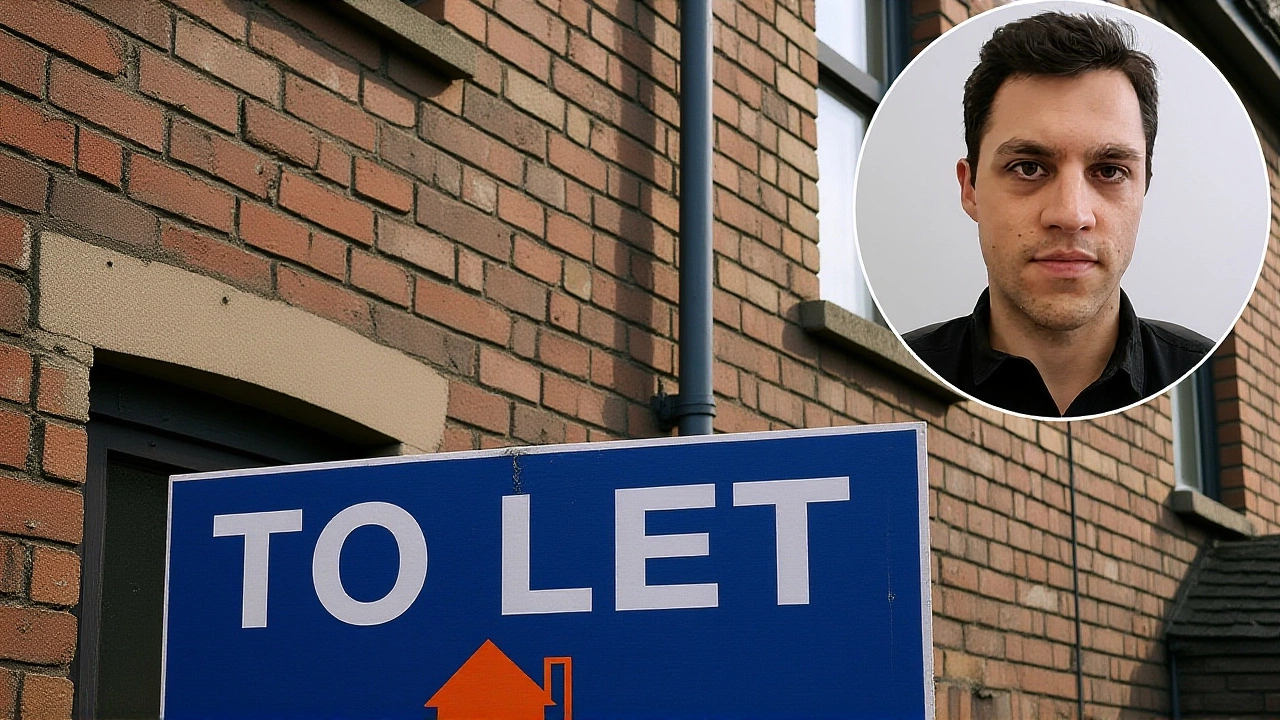The Renters' Rights Act 2025 became law at 7:40 pm BST on October 27, 2025, after receiving Royal Assent in the Palace of Westminster in London. For the first time in over three decades, landlords in England can no longer evict tenants without cause. This seismic shift ends the era of Section 21 ‘no-fault’ evictions — a legal loophole that had left 11 million private renters vulnerable to sudden displacement. The change doesn’t just tweak the system. It rewires it. And for many, it’s the first time they’ve felt truly secure in their homes.
From Broken Promises to Landmark Law
The roots of this reform stretch back to 2017, when then-Prime Minister Theresa May’s government published the White Paper Fixing our Broken Housing Market. It was a starting point, not a finish line. Over the next seven years, successive governments tinkered around the edges. The Homes (Fitness for Human Habitation) Act 2018 set basic health standards. The Tenant Fees Act 2019 banned letting fees. But the core injustice — the power to kick someone out with two months’ notice, no reason needed — remained untouched. Until now.The Labour Party made housing justice a cornerstone of its 2024 election platform. When Keir Starmer took office, his administration didn’t just revive the abandoned Renters’ Reform Bill. They sharpened it. Added teeth. And made it law.
What the Act Actually Does
This isn’t a single change. It’s a cascade of protections, each designed to restore balance:- Section 21 abolished: Landlords can no longer evict without cause. But they’re not powerless — new, clearer grounds for repossession now exist, including rent arrears, property damage, or the landlord needing the home for personal use.
- Awaab’s Law enters private housing: For the first time, landlords must fix dangerous hazards — like mould, leaking roofs, or faulty heating — within strict legal timeframes. Named after Awaab Ishak, the two-year-old who died in 2020 after prolonged exposure to toxic mould, this provision turns neglect into a legal breach.
- No more discrimination: Landlords can no longer refuse tenants on benefits, including Universal Credit, or because they have children. It’s now illegal.
- Pets are a right: Tenants can request to keep a pet. Landlords can’t say no without a valid reason — and even then, they can require pet insurance to cover potential damage.
- Bidding wars are over: Letting agents must publish fixed rents. No more ‘highest offer wins’ games. And no more demanding more than one month’s rent upfront.
- New Ombudsman with real power: The Private Rented Sector Ombudsman can force landlords to pay compensation, issue apologies, or fix problems. No more ignored complaints.
- Stronger local enforcement: Councils now have expanded powers to investigate and fine rogue landlords — including civil penalties up to £30,000 per breach.
These aren’t suggestions. They’re legal obligations. And the Department for Levelling Up, Housing and Communities — led by Steve Reed — is tasked with rolling them out via secondary legislation. No exact dates yet. But the clock is ticking.

Landlords React: Relief and Uncertainty
The National Residential Landlords Association — representing over 45,000 property professionals — acknowledged the changes as "the biggest shift the sector has seen in a generation." But their tone was cautious. "We’re glad the uncertainty is ending," said a spokesperson. "Now we need clarity on timelines and support for compliance."Industry analysts at Travers Smith LLP warn profitability will dip — especially for small landlords who relied on quick turnover. But they also note a silver lining: "The rules are now fixed. That’s better than the chaos of last-minute policy flips."
Some landlords are already adjusting. One in Manchester told me he’s started offering pet insurance as part of his standard tenancy agreement. "I used to say no to dogs," he said. "Now I say, ‘Show me the policy.’ It’s fairer. And honestly? My properties are better maintained."
Why This Matters Beyond the Rent Receipt
This law doesn’t just change housing. It changes lives.Think about the single mother working two jobs, terrified to ask for a repair because she might get evicted. Or the veteran on benefits, turned away from three flats because he had a child. Or the student with a cat, forced to leave their home because the landlord didn’t want "animals." These aren’t edge cases. They’re everyday realities.
The Housing Act 1988 created the modern private rental market — and it was built on imbalance. Now, after 37 years, that imbalance is being corrected. The Act doesn’t just protect renters. It acknowledges that housing is a human right, not a bargaining chip.

What’s Next? The Implementation Challenge
The law is passed. But enforcement is the real test.The Department for Levelling Up, Housing and Communities must now issue commencement orders for each provision. Will the Ombudsman be fully staffed by April? Will councils have the funding to inspect thousands of properties? Will landlords be trained on Awaab’s Law deadlines? These are the questions that will determine whether this law becomes a promise kept — or another broken pledge.
One thing’s certain: The power dynamic has shifted. For the first time in decades, renters aren’t just waiting to be told what they can’t do. They’re being told what they’re entitled to. And that changes everything.
Frequently Asked Questions
How does the Renters’ Rights Act affect tenants on Universal Credit?
Landlords can no longer legally refuse tenants who receive Universal Credit or other housing benefits. This ends a widespread practice where over 1.8 million benefit recipients were turned away annually. The Act makes such refusals a civil offense, enforceable by local authorities or the new Private Rented Sector Ombudsman. Tenants who are denied can now file complaints with binding consequences.
What happens if a landlord ignores Awaab’s Law deadlines?
If a landlord fails to fix serious hazards like toxic mould, gas leaks, or electrical faults within legally mandated timeframes — typically 14 to 28 days depending on severity — they face civil penalties up to £30,000 per breach. Tenants can report violations directly to their local council or the new Ombudsman, who can compel repairs, issue fines, and order compensation. This is the first time these standards apply to private rentals.
Can landlords still raise rent under the new law?
Yes, but with tighter rules. Rent increases must still follow the Section 13 notice process, requiring two months’ notice. However, the Act now prohibits landlords from using rent hikes as a tool to force out tenants — a tactic known as "constructive eviction." Local councils can investigate patterns of sudden, disproportionate increases, especially if tied to tenant complaints or benefit receipt.
When will the new rules take effect?
The Act received Royal Assent on October 27, 2025, but enforcement will roll out in phases through secondary legislation. The Department for Levelling Up, Housing and Communities has until June 2026 to issue commencement orders. The Ombudsman service and pet rights are expected to launch first — likely by early 2026 — while Awaab’s Law and full eviction protections may follow by autumn 2026.
Does this law apply to Scotland or Wales?
No. The Renters’ Rights Act 2025 applies only to England. Scotland already abolished Section 21 evictions in 2022 under its Private Housing (Tenancies) Act. Wales implemented similar protections in 2023. This law closes the gap for England, which had lagged behind the rest of the UK. Devolved administrations will now monitor its impact as they consider their own next steps.
How will the Private Rented Sector Ombudsman operate?
The Ombudsman will be an independent body funded by the government but operating separately from local councils. Tenants can file complaints online or by phone. The service will investigate, mediate, and — if needed — issue binding rulings requiring landlords to pay compensation, repair damage, or issue formal apologies. Unlike previous advisory bodies, its decisions are legally enforceable, with non-compliance subject to fines and public naming.
